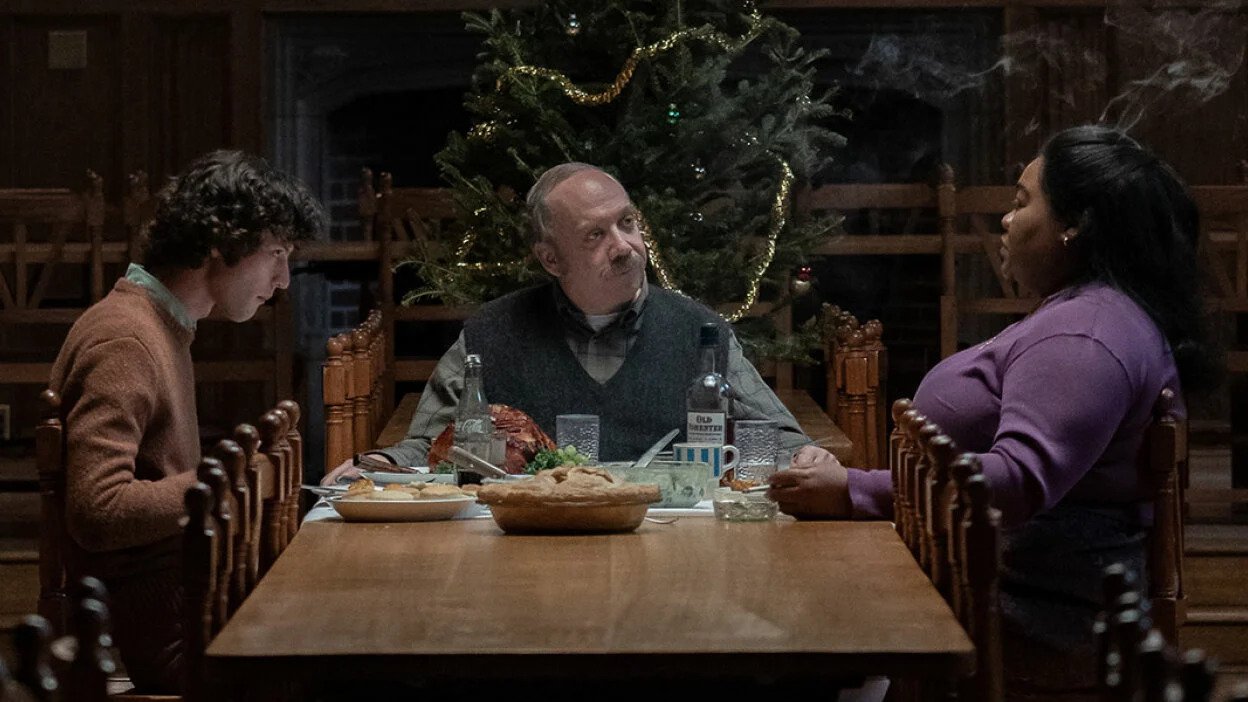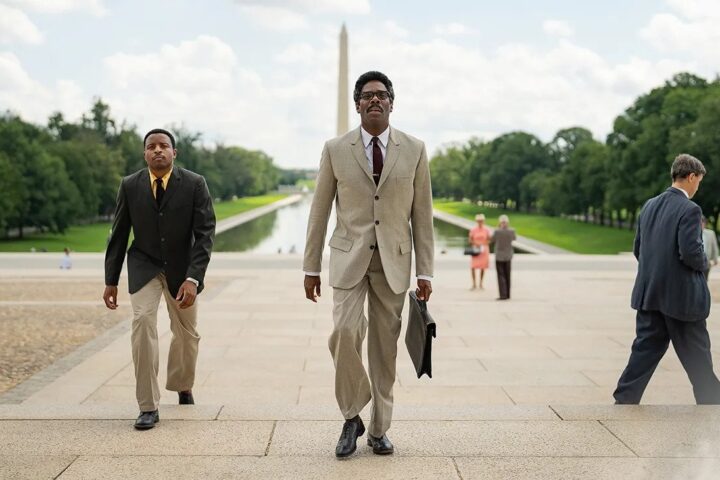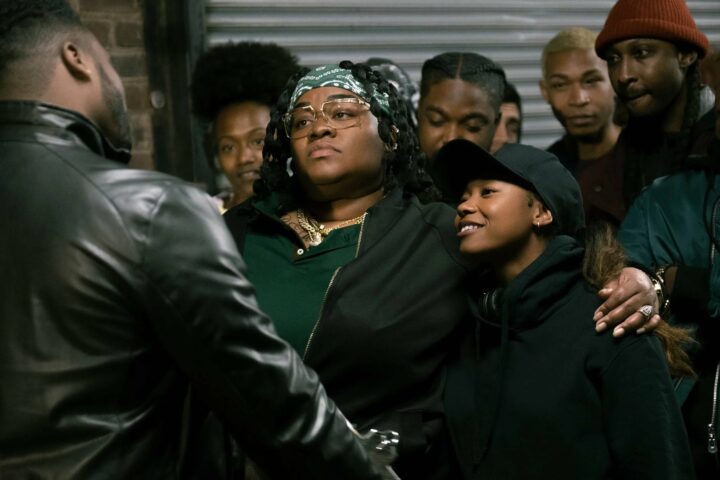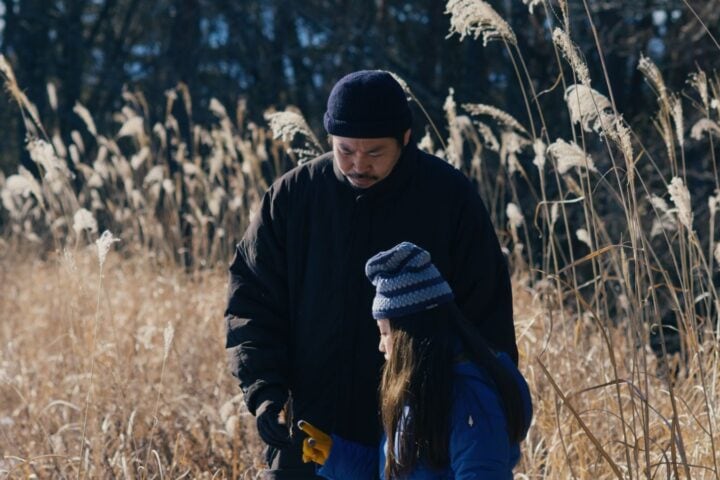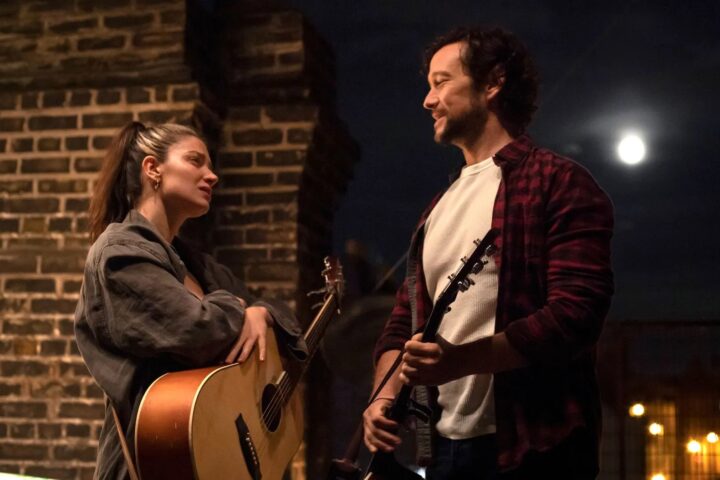Every Christmas movie has to have its scrooge. In Alexander Payne’s holiday-set dramedy The Holdovers, the curmudgeon is Paul Hunham (Paul Giamatti), a long-time teacher at Barton Academy, an elite Massachusetts boarding school. Paul treats the affluent students in his ancient history class with contempt, gleefully terrorizing them with poor grades in order to trip up their otherwise smooth rides to fancy colleges. He’s the kind of teacher who flunks almost everyone on their end-of-semester exam and then assigns the class extra homework over the holidays as prep for yet another exam as soon as they get back. Bah humbug, indeed.
It’s not just the students at Barton who loathe Paul. So does the school’s administration. Hence Paul being saddled with holdover duty over the winter break—that is, to supervise any students who, for whatever reason, can’t go on lavish vacations like the rest of their peers, or even home to their families. For the solitary Paul, who rarely leaves the campus grounds anyway, this wouldn’t necessarily present much of a problem if it weren’t for having to babysit a handful of vulgar young ruffians, chief among them the bright but unruly Angus Tully (Dominic Sessa).
The push-and-pull dynamic between Paul and Angus becomes the focal point of The Holdovers. Paul’s idea of holiday fun for his wards is, of course, to make them study like it’s a traditional school day. Angus, who’s forced to stay at the school as his mother and new stepfather are honeymoon-bound and as such unreachable, is primed to blow up Paul’s totalitarian rule, consequences be damned (he’s already been kicked out of three prior boarding schools). Will their mutual disdain for one another eventually give way to a deeper shared bond? One certainly doesn’t need to wield Paul’s level of academic intellect to figure that one out.
The aesthetic of The Holdovers harkens back to the New Hollywood cinema of the 1970s, matching the time period in which this story is set, which is announced by the retro studio logos and opening credits. Cinematographer Eigil Bryld’s vintage visuals imbue the film’s wintry setting with a distinct warmth, allowing the picturesque environment to gradually envelop us like a warm blanket. The story is accordingly fashioned as a kind of leisurely paced character study that may have at one point been helmed by Bob Rafelson or Hal Ashby (a connection that the persistent soundtrack of Cat Stevens and other period specific folk-rock only reinforces).

Except, unlike the New Hollywood touchstones that it aspires to, The Holdovers is as by the book as Paul’s rigid academic approach. The script, from television veteran David Hemingson, smoothly hits all the emotional beats one would expect, without necessarily making room for many interesting deviations. In due course, Paul and Angus both reveal the anticipated past traumas that have resulted in their current miserly states, leading to a few stirring moments and a rousing conclusion in which you can practically mouth along the predictable dialogue with the characters. Payne vigorously engages with these archetypal tropes, but for a filmmaker who’s proved equally adept at crafting edgy satires (Election) and sincere, if offbeat, slices of Americana (Nebraska), The Holdovers feels like a rather standard-issue affair.
What truly saves the film from pure sentimentality is its performers. Giamatti makes a meal out of his character’s caustic world-weariness, constantly launching into amusing anecdotes about ancient civilization even during the most casual of conversations. In his debut performance, Sessa so impressively matches his co-star barb for barb that it’s easier to disregard the myriad contrivances that bring and keep their characters together. Another stabilizing force is Da’Vine Joy Randolph as Mary Lamb, the school’s head chef. Mary stays over at the school to cook for Paul and Angus, and Randolph offers movingly layered insights into her character’s grief over the loss of her son, who attended Barton due to a scholarship, in Vietnam.
The Holdovers is ultimately a story about the absence of family, and as the film watches these three individuals come together and apart, it’s subtly attuned to the way that class constricts people’s lives. Paul, Angus, and Mary are all outsiders at Barton. In Angus’s case, he’s only here thanks to the rich pockets of his callous stepfather, who only wants him out of the picture. Yet even though they’re more or less forgotten by the rest of the academy, it’s apparent that they’re the only ones who truly embody Barton’s progressive ethos. The Holdovers finds its humanity, then, in its depiction of how this trio engages in reciprocity through their loneliness.
Since 2001, we've brought you uncompromising, candid takes on the world of film, music, television, video games, theater, and more. Independently owned and operated publications like Slant have been hit hard in recent years, but we’re committed to keeping our content free and accessible—meaning no paywalls or fees.
If you like what we do, please consider subscribing to our Patreon or making a donation.

